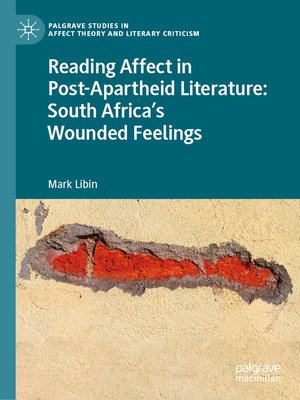Reading Affect in Post-Apartheid Literature
ebook ∣ South Africa's Wounded Feelings · Palgrave Studies in Affect Theory and Literary Criticism
By Mark Libin

Sign up to save your library
With an OverDrive account, you can save your favorite libraries for at-a-glance information about availability. Find out more about OverDrive accounts.
Find this title in Libby, the library reading app by OverDrive.



Search for a digital library with this title
Title found at these libraries:
| Library Name | Distance |
|---|---|
| Loading... |
This book examines South Africa's post-apartheid culture through the lens of affect theory in order to argue that the socio-political project of the "new" South Africa, best exemplified in their Truth and Reconciliation Commission Hearings, was fundamentally an affective, emotional project. Through the TRC hearings, which publicly broadcast the testimonies of both victims and perpetrators of gross human rights violations, the African National Congress government of South Africa, represented by Nelson Mandela and Archbishop Desmond Tutu, endeavoured to generate powerful emotions of contrition and sympathy in order to build an empathetic bond between white and black citizens, a bond referred to frequently by Tutu in terms of the African philosophy of interconnection: ubuntu. This book explores the representations of affect, and the challenges of generating ubuntu, through close readings of a variety of cultural products: novels, poetry, memoir, drama, documentary film and audio anthology.







